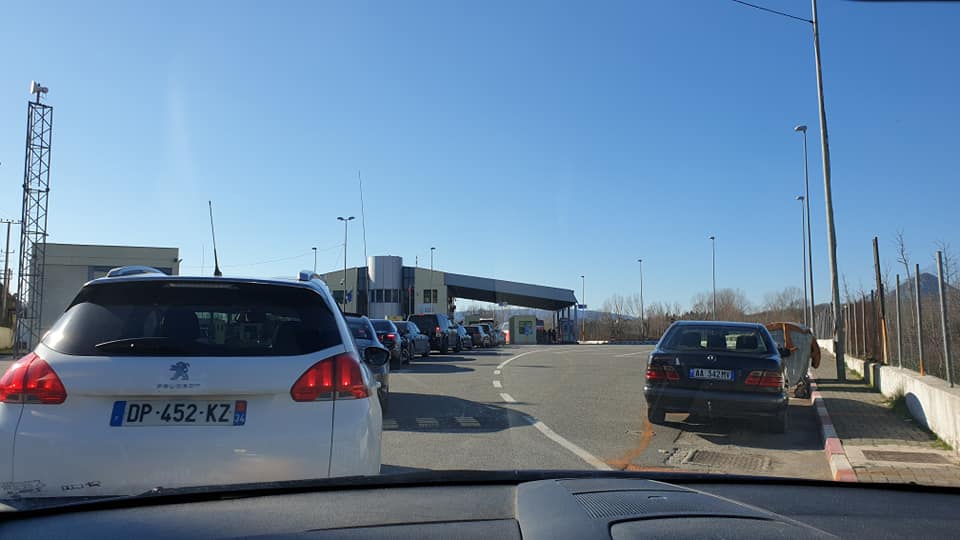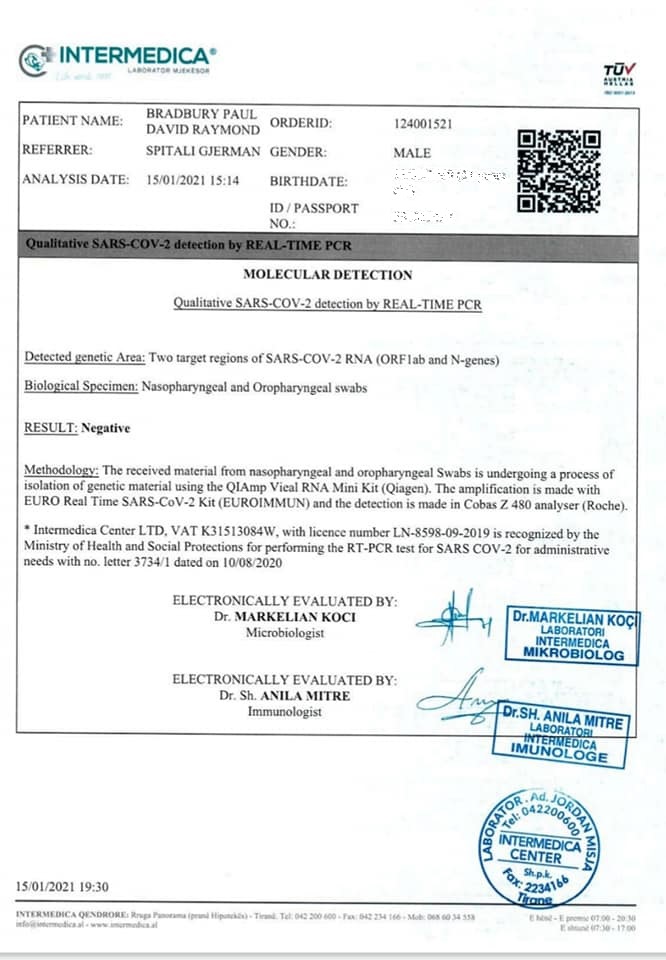Flights to Croatia: Iberia Plans Dubrovnik and Zagreb Services in March
January 22, 2021 - The latest news for flights to Croatia as Iberia plans Dubrovnik and Zagreb services in March.
Croatian Aviation reports that Spanish national airline Iberia has confirmed that it plans to return to Dubrovnik and Zagreb in March this year.
In the 2020 summer season, Iberia operated on only one line to Croatia, connecting Madrid with Dubrovnik. All other routes to Croatian airports did not operate last summer due to low demand.
As confirmed to Croatian Aviation, Iberia plans to return to Zagreb and Dubrovnik at the end of March, and flights will operate depending on restrictive measures and the epidemiological situation.
The Madrid - Zagreb - Madrid line will operate its first flight this year on March 27. The airline plans to operate on this line 3 times a week until the end of April, mostly on Fridays, Saturdays, and Sundays. A320 and A321 aircraft have been announced on the route. From the end of March to the beginning of May, the airline plans to offer over 5,700 seats between Zagreb and Madrid. An increase in the number of weekly flights is expected from mid-May, while in the peak of the summer season, Iberia should operate on this route at least once a day.
The Madrid - Dubrovnik - Madrid line should launch a little earlier, on March 25. The company initially plans three flights a week on this route, but there are already certain dates with ad-hoc flights on other days of the week. From the end of March to the beginning of May, the airline plans almost 20 return flights on this line, and slightly more seats are available for sale compared to the Zagreb line, over 6,500!
We remind you that Iberia did not operate to Zagreb, Split, and Zadar in the summer flight schedule last year, and judging by the current schedule, it will operate to Dubrovnik and Zagreb this year. Of course, changes are still possible. The airline has confirmed that it plans to operate on routes to Croatia according to the specified flight schedule, but this will, once again, depend on restrictive measures and the epidemiological situation that directly affects demand on flights. Routes to and from Madrid in that sense are no exception.
Iberia, Líneas Aéreas de España, S.A., the operator, Sociedad Unipersonal, is the largest Spanish airline. The company was founded in 1927 and is headquartered in Madrid. With its fleet of over 70 aircraft, it flies to more than 70 domestic and international destinations. Their central airport is Barajas in Madrid, and as a second base, they use El Prat Airport in Barcelona.
Iberia has a developed network of destinations. With one transfer, it is possible to travel from and to Boston, Los Angeles, Mexico City, Chicago, New York, Bogota, Buenos Aires, Sao Paulo, Lima, and many other destinations in North and South America.
For the latest travel info, bookmark our main travel info article, which is updated daily.
Read the Croatian Travel Update in your language - now available in 24 languages.
Of Borders and PCR Tests: Reflections on a Balkan Road Trip During the Pandemic
January 17, 2021 - Taking a Balkan road trip during the pandemic with limited information can be a challenge. A recent border crossing experience from Croatia to Albania, via Bosnia and Hercegovina, Montenegro, and back.
"Do you have your PCR test for Montenegro?" asked the Croatian border guard, while scanning my passport.
"No, because they are no longer required."
"Yes they are."
"My information is that they are no longer required since yesterday."
The official picked up the phone, asked someone on the Montenegrin side, then confirmed that yes, in fact, I was right. Test no longer required.
"Good to know," he said, before handing me my passport and wishing me a good trip.
Good to know indeed, I thought to myself. But if the border guards are not up to date with the latest situation, what chance for travellers? There has been such confusion about travel regulations with the lack of clear official information for months now, and the number of people seeking advice on the Total Croatia Travel INFO Viber community is a testament to that.

Having been mostly stuck on my sofa working online for the last couple of months, especially after living in a country whose cafes and restaurants have been shut for weeks, the prospect of a 12-hour drive from Varazdin to Tirana filled me with a little trepidation. Among the key worries was how easy it would be to cross the border, and whether or not the information I had found online had been correct. And if I did need a PCR test, where could I get one quickly in Dubrovnik?
As I sailed down the motorway, thoughts turned to food. Having become accustomed to living in a world without restaurants and bars, the charms of the motorway service station was my only option, but then I wondered if I had correctly remembered something about restaurants being open in Bosnia? I asked some friends what they could find. One replied that they were open only in the ski resorts, another that they were open everywhere. Again, finding concrete information in the Information Age...
Driving through the Neum Corridor which separates the two parts of Croatia until the Peljesac Bridge is finished, nothing more than a passport check and several questions about my destination. As I drove through Neum, I was wondering if my usual stopping point would be open and serving food. I was convinced it would not be, having been accustomed to a world without cafes and restaurants.
It was!
Even though it was far from the finest meal of my life, sitting in a restaurant with a mixed grill and a cold beer was one of the most exhilarating experiences in recent memory. The Old Normal.

And I was only seconds into my old comfort zone before I encountered yet one more blast from the past - Balkan cafe philosophy. It has been a while since I had been privy to the pearls of wisdom that emanate daily from the cafes of the region, and it was good to have back in my life (I think...).

On to Montenegro and a first meeting, where my initial information was that only hotels could be open and serve, but then a secondary source said that all bars and restaurants could now work until 22:00, after which there was a nationwide curfew.
Once the border guard on the Croatian side was up to speed with the new rules, it was straight to Kotor old town and a meeting in a pub - just like life used to be. I can't tell you how nice it was to be back to how things used to be, or how people were observing distance in a way I don't see as much in Croatia. The evening curfew, which is also in effect in Bosnia and Albania, gets people back to their homes at night, so less house parties, while allowing businesses to operate, and for people to meet. From a psychological point of view, after weeks of closed bars and restaurants, it felt revolutionary. I am no expert in these things, but closed cafes and no curfew v open cafes and an evening curfew seems to have only one logical winner.

On to Albania. A 30-minute wait at the border, but a vehicle and passport check only.

I spent the biggest part of my trip in Albania, and the longer I stayed, the more comfortable I was about a return to the old normal. More people wore masks in the streets than in the other countries, and the rules were more rigidly adhered to inside buildings. And it is interesting to note that Albanian corona deaths per capita are considerably less (more than 50% less) than their Balkan neighbours.
There is another aspect to this, especially in periods of prolonged lockdown - the psychological effects. Just having the option to go somewhere, even with restricted opening hours, makes a big difference mentally, as well, of course, as the economic effect for cafe and restaurant owners. It will be interesting to see what route Croatia chooses with the expected new measures on February 1.

Yet more border rule changes from Croatia as I was out of the country, mostly affecting travellers from the UK. I knew that I needed a negative PCR test no older than 48 hours for re-entry, and finding a place that could deliver this in Tirana was the first thing I needed to sort on arrival. The German Hospital was the place to go. And for just 71 euro, I had the pleasure of a swab up both nostrils and the back of the throat, with the negative results sent by email and WhatApp less than three hours later. Very efficient.
The most challenging border on my return would be entering Croatia and showing the PCR test, but that was also very efficient. I showed the email from the hospital and was given a piece of paper with instructions and an email address to forward the test (the Croatian border police). And once it was sent, I was on my way.

Next destination, the island of Hvar and ferry to Sucuraj, but where to stop for a late lunch on the way? With everything closed in Croatia, the only option was Neum once more, which provided me enough sustenance for the final leg of the journey.
But the view from Neum shows how this region is changing, and the Neum Corridor will be much less busy when the Peljesac Bridge finally opens (in, from memory, 2022).
Let's hope Croatia will have opened its bars and restaurants by then.
For the latest travel info, bookmark our main travel info article, which is updated daily.
Read the Croatian Travel Update in your language - now available in 24 languages.
Join the Total Croatia Travel INFO Viber community.
New Official Croatian Border Crossing Rules, Recommendations (January 16, 2021)
January 17, 2021 - The official Koronavirus.hr website has updated the latest Croatian border crossing rules and regulations.
On 13th of January 2021, the Civil Protection Headquarters of the Republic of Croatia issued a Decision temporarily prohibiting and restricting the crossing of persons across all border crossing points of the Republic of Croatia (NN 3/21). However, in accordance with the guidelines of the competent authorities, exceptions have been made as follows:
Passengers travelling to the Republic of Croatia from an EU / EEA member state (regardless of their citizenship)
Passengers coming directly from the countries and / or regions of the European Union, i.e. countries and / or regions which are Member States of the Schengen Area and Schengen Associated Countries, and which are currently in the so‑called green list of the European Centre for Disease Prevention and Control, regardless of their citizenship, will be allowed entry into the Republic of Croatia under the same conditions as before the onset of the COVID-19 disease (they do not need to present a negative PCR test result for SARS-CoV-2 nor are they assigned the measure of self-isolation) if they show no signs of disease and they have not been in close contact with an infected person.
If the aforementioned persons transited to the border crossing points of the Republic of Croatia through other countries / regions without delay, they should prove at the border crossing point that they did not stay in transit areas and in that case, they will not be required to have a negative PCR test result for SARS-CoV-2 not older than 48 hours, nor stay in self-isolation.
Graphic representation of countries by color according to the risk of the COVID-19 disease can be found on the website of the European Centre for Disease Prevention and Control (ECDC)
All other passengers who, regardless of their citizenship, come to the Republic of Croatia from EU / EEA member states / regions, and which are currently not on the so-called green list of the European Centre for Disease Prevention and Control, must present a negative PCR test result for SARS-CoV-2 that is not older than 48 hours (counting from the time of taking the swab to arriving at the border crossing point) or have the PCR test for SARS-CoV-2 done immediately upon arrival in the Republic of Croatia (at their own expense), with the obligation of self-isolation until they receive a negative test result. In the case of impossibility of testing, a measure of self-isolation is determined for a period of ten (10) days.
Exceptionally, the PCR test for SARS-CoV-2 is not obligatory for the following categories of passengers traveling from EU / EEA member states / regions although they come from countries that do not belong to the green list of the European Center for Disease Control and Prevention:
- workers or self-employed persons performing essential tasks, including healthcare workers, frontier and posted workers and seasonal workers as specified in the Guidelines concerning the exercise of the free movement of workers during COVID-19 outbreak, provided they do not stay in the Republic of Croatia or outside the Republic of Croatia for longer than 12 hours;
- pupils, students and interns who travel abroad every day, provided that they do not stay in the Republic of Croatia or outside the Republic of Croatia for longer than 12 hours;
- seafarers and workers in the transport sector or transport service providers, including heavy goods vehicle drivers transporting goods to be used in the national territory and those who only transit;
- diplomats, staff of international organizations and persons invited by international organizations whose physical presence is necessary for the functioning of those organizations, military personnel and police officers, as well as humanitarian and civil protection personnel in the performance of their duties;
- persons traveling for necessary family or business reasons, including journalists in the performance of their duties;
- passengers in transit with the obligation to leave the Republic of Croatia within 12 hours from entry;
- patients traveling for urgent health reasons.
The provisions regarding frontier workers apply adequately to other categories of passengers who, due to the nature of their job or occupation, need to cross the state border frequently (e.g. athletes playing for clubs in a neighboring country).
Citizens of EU / EEA member states as well as members of their families traveling to the Republic of Croatia from third countries, i.e. those that are not members of the EU / EEA
Citizens of EU Member States (including Croatian citizens), i.e. of Schengen Member States and Schengen Associated States, as well as members of their families and third-country nationals who are long-term residents under Council Directive 2003/109/EC of 25 November 2003 concerning the status of third-country nationals who are long-term residents and persons entitled to reside under other EU directives or national law or who have national long-term visas coming from third countries, upon entering the Republic of Croatia must present a negative PCR test result for SARS-CoV-2 that is not older than 48 hours regardless of their citizenship (counting from the time of taking the swab to arriving at the border crossing point) or have the PCR test for SARS-CoV-2 done immediately upon arrival in the Republic of Croatia (at their own expense), with the obligation of self-isolation until they receive a negative test result. In the case of impossibility of testing, a measure of self-isolation is determined for a period of ten (10) days.
Exceptionally, for the abovementioned persons, a negative PCR test result for SARS-CoV-2 not older than 48 hours will not be obligatory at the border crossing point for healthcare workers, health researchers and caregivers for the elderly, frontier workers, workers in the transport sector, diplomats, staff of international organizations and persons invited by international organizations whose physical presence is necessary for the good functioning of those organizations, military personnel and police officers, as well as humanitarian and civil protection personnel in the performance of their duties, passengers in transit with the obligation to leave the Republic of Croatia within 12 hours from entry and persons travelling for schooling purposes, as well as persons who travel for urgent personal / family reasons, business reasons or have some other economic interest, and do not stay in or out of the Republic of Croatia for more than 12 hours.
Third-country nationals not covered by the abovementioned points
Third-country nationals not covered by the abovementioned points may enter the Republic of Croatia from third countries, and on that occasion, they do not need to present a negative PCR test result nor a self-isolation measure will be assigned to them, only if they are:
- healthcare workers, health researchers and caregivers for the elderly;
- frontier workers (as well as e.g. athletes as stated in the exceptions for passengers within the EU / EEA);
- workers in the transport sector;
- diplomats, staff of international organizations and persons invited by international organizations whose physical presence is necessary for the good functioning of those organizations, military personnel and police officers, as well as humanitarian and civil protection personnel in the performance of their duties;
- passengers in transit with the obligation to leave the Republic of Croatia within 12 hours from entry;
- persons travelling for schooling purposes;
- seafarers (if they intend to stay in the Republic of Croatia for more than 12 hours, entry into the Republic of Croatia will be provided upon presentation of a negative PCR test on SARS-CoV-2 not older than 48 hours or by PCR testing on SARS-CoV-2 immediately upon arriving to the Republic of Croatia and by self-isolating until they receive a negative test result);
- persons travelling for urgent personal / family reasons, business reasons or other economic interest (if they intend to stay in the Republic of Croatia for more than 12 hours, entry into the Republic of Croatia will be provided upon presentation of a negative PCR test on SARS-CoV-2 not older than 48 hours or by PCR testing on SARS-CoV-2 immediately upon arriving to the Republic of Croatia and by self-isolating until they receive a negative test result).
Passengers covered by Annex I to Council Recommendation (EU) 2020/912 on the temporary restriction on non-essential travel into the EU and the possible lifting of such restriction
Passengers (regardless of their citizenship) coming directly from countries covered by Annex I to Council Recommendation (EU) 2020/2169 of 17 December 2020 amending Recommendation (EU) 2020/912 on the temporary restriction on non-essential travel into the EU and the possible lifting of such restriction do not have to present a negative test result for SARS-CoV-2 nor are they subject to self-isolation if they have not been in close contact with an infected person and show no signs of disease. During their stay in the Republic of Croatia, they are obliged to adhere to the general and special recommendations and instructions of the Croatian Institute of Public Health.
At the border crossing point, the aforementioned persons, who transited to the border crossing points of the Republic of Croatia through other countries / regions without delay, should prove that they did not stay in transit areas and in that case, they will not be required to have a negative PCR test result for SARS-CoV-2 not older than 48 hours nor stay in self-isolation.When entering the Republic of Croatia, nationals of third countries covered by the list of countries of the Croatian Institute for Public Health to whom special epidemiological measures are applied (available here) must present a negative PCR test result not older than 48 hours and they are obliged to stay in self-isolation for 14 days, which could be shortened if a person takes a PCR test for SARS-CoV-2 at their own expense on the seventh day of self-isolation at the earliest at an institution authorized to perform PCR testing and the result is negative.
Persons travelling to the Republic of Croatia for humanitarian reasons related to providing assistance to the areas affected by the earthquake
Persons travelling to the Republic of Croatia for humanitarian reasons related to providing assistance to the areas affected by the earthquake (Sisak-Moslavina County, Karlovac County and Zagreb County), regardless of their citizenship and the area from which they arrive, are allowed to enter the Republic of Croatia based on the previous consent of the Civil Protection Headquarters of the Republic of Croatia.
These persons present an exception and will be allowed to enter the Republic of Croatia without the need to present a negative PCR test result on SARS-CoV-2, nor will they be obliged to self-isolate upon entering the Republic of Croatia.
In order to shorten the procedure at the border crossing point, we advise all foreign passengers, regardless of their citizenship, to fill the announcement in advance at Enter Croatia.
General note: if the passenger’s validity of the PCR test for SARS-CoV-2 of 48 hours expired during the border control at the entrance to the Republic of Croatia or they do not have the PCR test at all and they meet other conditions of entry, they will be allowed to enter the Republic of Croatia, provided that they immediately get tested in the Republic of Croatia at their own expense, with the obligation to stay in self-isolation until they receive a negative test result.
Lifting the measure of self-isolation (imposed on the border crossing point) after the receipt of a negative PCR test result:
In such cases, passengers will receive a leaflet at the border crossing point with instructions on the actions to be taken after they receive a negative molecular PCR test result (rapid antigen tests or serological tests will not be accepted).
The leaflet will include an e-mail address of the border crossing point where the passenger was imposed the measure of self-isolation, to which he/she can send the negative test result obtained from the medical facility where the test was taken, so that the imposed measure can be lifted (removed).
These persons are obligated to take the test at the place of their temporary or permanent residence, where they have all of the necessary conditions for self-isolation until their negative PCR test result arrives.
Persons who have recovered from COVID-19 within the past three months are exempt from the obligation to provide a negative PCR test result and to self-isolate.
In order to prove their recovery, passengers need to have a positive PCR test result or antigen test result, or a positive neutralization test (NT) result obtained within the last three months and older than 14 days, or a certificate of recovery issued by a doctor.
Persons who have a negative PCR test result made in the Republic of Croatia due to a short trip to our neighboring or another country and return to the Republic of Croatia within less than 48 hours from the day of testing, i.e. within the period of test validity, will not be required to present a new PCR test from the country in which they have been staying for a short time, but will be allowed to enter upon presenting the test made in the Republic of Croatia.
When staying in the Republic of Croatia, all passengers, regardless of their category and country from which they came, are obliged to follow the general and special instructions and recommendations of the Croatian Institute of Public Health.
For the latest news regarding coronavirus in Croatia, follow the dedicated TCN section.
Flights to Croatia: Croatia Airlines Only Airline Offering London-Zagreb
January 15, 2021 - The latest news for flights to Croatia as Croatia Airlines is the only airline currently offering direct flights between London-Zagreb.
Croatian Aviation reports that Croatia Airlines is the only airline to offer direct flights between London and Zagreb in January and February this year.
After a new strain of coronavirus was found in the UK, there was a suspension of air traffic to and from this country. Thus, air traffic between Croatia and Great Britain was briefly suspended. At that time, two airlines were operating between London and Zagreb - Croatia Airlines and British Airways.
British Airways returned to Zagreb only briefly, during the holidays, and currently has no direct flights between London and Zagreb in January and February. The first flight available for booking on their official website is scheduled for Monday, March 1, 2021.
Given the development of the global pandemic, British Airways may further cancel said operations, but it is unwise to forecast a month or more in advance.
However, with the first days of 2021, the Croatian national airline started operating again on the route between London and Zagreb and offers direct flights between the two cities with a minimum weekly frequency, every Monday.
It is the only direct line from Croatia to London. Namely, other airports in the winter flight schedule do not have a direct line to this European metropolis, except for Dubrovnik, to which British Airways also operated in the winter, apart from this year.
From March 1, Croatia Airlines also plans to increase the number of weekly flights, but this will, as is the case with British Airways, primarily depend on the global pandemic and the demand.
Croatia Airlines operates A319 aircraft on the route between London and Zagreb, which have a capacity of 144 seats in the national airline's fleet. By the end of February, Croatia Airlines offers over 2,300 seats on direct flights between these two capital cities.
For the latest travel info, bookmark our main travel info article, which is updated daily.
Read the Croatian Travel Update in your language - now available in 24 languages.
Flights to Croatia: Sundor Plans to Connect Tel Aviv with Zagreb and Dubrovnik
January 14, 2021 - The latest news for flights to Croatia as Israeli Airline Sundor plans to connect Tel Aviv with Zagreb and Dubrovnik this year.
Croatian Aviation reports that Israeli leisure airline Sundor Airlines plans to establish a direct route between Tel Aviv and Zagreb with the start of the summer flight schedule.
Namely, Sundor plans to bring back the direct line between Zagreb and Tel Aviv with the start of the 2021 summer flight schedule.
The Israeli carrier has been operating on this route for years, which is mainly used by tourists from Israel, and Croatia Airlines also operates on the same route in the summer flight schedule, which is the only night flight in the summer flight schedule (departure from Zagreb airport around midnight). Croatia Airlines did not operate on this route in the summer flight schedule in 2020, while Sundor performed only a few rotations on this route in during the crisis in 2020.
Sundor will establish regular operations on this line from March 30, 2021, with one flight per week, every Tuesday.
From May 10, the number of weekly flights will increase to three, every Monday, Tuesday, and Wednesday, with B737-800 aircraft that has a capacity of 185 seats in the fleet of this airline.
Sundor plans to return to Dubrovnik Airport, too. The Tel Aviv-Dubrovnik line should start with traffic a little later than the Zagreb line, or from May 11. The airline plans to operate on this line only once a week, every Tuesday. B737-800 aircraft is also planned on the route to Dubrovnik.
Tickets for the two mentioned lines are already on sale on the official websites of Sundor and partner El Al Airlines.
For the latest travel info, bookmark our main travel info article, which is updated daily.
Read the Croatian Travel Update in your language - now available in 24 languages.
New Border Rules for Croatia from Countries with New Covid Strains
January 13, 2021 - The Croatian Civil Protection Headquarters announced new border rules for Croatia for travelers coming from countries with the new Covid strains, specifically the United Kingdom and South Africa.
Jutarnji List reports that the National Civil Protection Headquarters made a new decision on crossing the Croatian border, which restricts non-mandatory arrivals to Croatia, especially from countries where the new strain of coronavirus is spreading, such as the United Kingdom and South Africa. The Croatian Institute of Public Health will adopt the list of these countries and special epidemiological measures will be applied to passengers from these countries, Chief of the Headquarters, Davor Bozinovic, said at a press conference, explaining that the decision is not related to citizenship but to the area the traveler is coming from.
"Passengers from these countries must show a negative 48-hour PCR test when entering Croatia and will be ordered to 14 days of isolation. At the moment, the United Kingdom and South Africa are on that list," Bozinovic said.
He added that their quarantine could be reduced to seven days if they take a PCR test in authorized institutions and if the test is negative.
Persons from third countries coming due to urgent personal reasons such as funerals or medical treatment will have their stay in Croatia limited to a maximum of 12 hours.
"Special rules have been introduced for persons coming to deliver aid for the quake-hit areas. They will be able to enter Croatia with prior consent from the Headquarters, in other words, without a test," Bozinovic added.
Beros: The measures are yielding results, but we must be careful
Minister of Health Vili Beros said that today, for the first time since November 22 last year, we have less than 2,000 hospitalized (1993), and the number of deaths below 30.
"We must continue to be careful. However, we can conclude that our balanced measures are yielding results and that this is the optimal winning formula in Croatia when it comes to fighting the epidemic," Beros. said.
To read more about COVID-19 in Croatia, follow TCN's dedicated page.
Flights to Croatia: LOT and Air Serbia Have No Rijeka Plans this Summer
January 13, 2021 - The latest news for flights to Croatia as LOT and Air Serbia have no Rijeka plans this summer.
Croatian Aviation reports that LOT and Air Serbia are not currently planning to return to Rijeka Airport in the upcoming summer flight schedule.
The Serbian national airline announced in a press release a few days ago that it would not resume traffic on four international routes in the 2021 summer flight schedule, including the line between Belgrade and Rijeka.
The Belgrade-Rijeka line was introduced in June 2019 and operated twice a week on ATR75 aircraft. The line continued to operate in most of the 2019/2020 winter flight schedule, but traffic was suspended before the global pandemic due to weak demand.
In the summer of 2020, Air Serbia did not resume traffic on several routes to Croatia (to Pula, Rijeka, and Zadar). The airline confirmed that it would permanently cancel the line between Belgrade and Rijeka in the restructuring process.
The Polish national airline, LOT Polish Airlines, introduced a route between Warsaw and Rijeka in July 2020. Originally, before the global pandemic, the airline planned to operate on this route from the very beginning to the end of the summer flight schedule last year. Still, for objective reasons, this was not possible.
LOT aircraft landed on Krk from the beginning of July to the middle of September 2020, and the airline currently does not plan to resume traffic on this line in the summer flight schedule this year.
Although introducing this line in the 2020 summer flight schedule was a bold move by the airline, it is not clear why LOT decided not to continue operating to Rijeka in the summer of 2021. Namely, whatever result the airline achieved on this route last summer cannot be relevant given that at the time of the global pandemic, the occupancy of aircraft on almost all routes was extremely low.
The loss is not great considering that LOT to Rijeka operated briefly and only once a week. Still, even such a minimum frequency enabled direct air connections between Kvarner and the Polish capital.
It should be noted that the German leisure airline, Condor, also confirmed that it does not currently plan to reintroduce the Frankfurt - Rijeka route in the summer of 2021 but is leaving the possibility of changes until mid-March when it concludes its schedule for this year's summer flight schedule.
For the latest travel info, bookmark our main travel info article, which is updated daily.
Read the Croatian Travel Update in your language - now available in 24 languages.
Flights to Croatia: Flydubai Delays Zagreb Return to May 2021
January 6, 2021 - The latest news for flights to Croatia as Flydubai delays Zagreb return to May 2021.
Ex Yu Aviation reports that Flydubai has delayed its Zagreb return until May 14, 2021, and will run on a daily basis once restored. Flights between Dubai and Zagreb were initially to resume on March 29.
Recall, Flydubai is replacing the famous Emirates, which has temporarily canceled the line to Zagreb and will not operate on it in 2021, due to the impact of the pandemic.
Flydubai had initially announced it would operate its first flight to Zagreb at the end of March 2021 and would run four times a week on this route through April and May, every Wednesday, Friday, Saturday, and Sunday.
Now, Flydubai should operate daily from its new start date (May 14) until September 5 next year.
It was announced earlier that the number of weekly flights from September 6 will be reduced to four (Wednesdays, Fridays, Saturdays, and Sundays) until the end of October.
Flydubai will operate on the Zagreb - Dubai route with narrow-body aircraft type B737-800, and in the summer flight schedule, it plans to perform as many as 164 return flights.
This low-cost airline will offer more than 57,000 seats between Dubai and Zagreb in the summer flight schedule, which is significantly less than in 2019 when Emirates operated on this route with a B777-300ER wide-body aircraft with an average capacity of 358 seats per flight (in 2019, more than 152 thousand seats were available on this line, so the number of seats offered on this line will be lower by over 60% compared to 2019.)
Apart from the smaller capacity, the Dubai - Zagreb line will no longer have a first-class seat offer for which Emirates is world-famous. The number of offered seats in business and economy class will be drastically reduced. Nevertheless, the return of Flydubai to Zagreb will enable Emirates passengers to continue their journey to Zagreb with a partner company, which is very important for the market's recovery next year.
Flydubai also plans to return to its second destination in Croatia - Dubrovnik. The Dubai - Dubrovnik line should operate from May 13, twice a week, on Thursdays and Sundays. From June 25, the airline plans to add a third weekly flight (Fridays), and scheduled flights are announced until the end of September next year.
For the latest travel info, bookmark our main travel info article, which is updated daily.
Read the Croatian Travel Update in your language - now available in 24 languages.
Flights to Croatia: Volotea Announces 21 Lines to Croatia for Summer 2021
January 5, 2021 - The latest news for flights to Croatia as Volotea announces 21 lines to Croatia for summer 2021.
Croatian Aviation reports that well-known Spanish low-cost airline Volotea has announced as many as 21 international direct routes to Croatia for the summer of 2021.
Volotea, with operational bases in Spain, Italy, France, and Greece, plans to operate on as many as 21 international routes to two Croatian airports - Dubrovnik and Split.
Lines to Split Airport
According to the airline's current plans, Volotea will operate on as many as 10 international routes to Split Airport in the 2021 summer flight schedule, which will take effect at the end of March. This includes one line from Greece, as many as six from France, and three from neighboring Italy:
Split - Athens from April 25 will run twice a week, every Wednesday and Sunday,
Split - Bordeaux from April 11 will operate once a week, and from June 2 twice a week, every Wednesday and Sunday,
Split - Lyon will operate twice a week from April 11, on Wednesdays and Sundays, and from July 6, the third flight will be added (Tuesdays),
Split - Marseille will be in operation from April 25 twice a week (Wednesdays and Sundays),
Split - Nantes from April 4 will run once, from April 28 twice a week, from July 6 three times (Tuesdays, Wednesdays, and Sundays),
Split - Nice from April 25 will operate once a week, from July 7 twice a week (Wednesdays and Sundays),
Split - Toulouse will operate twice a week from April 18, from July 6 three times a week (Tuesdays, Wednesdays, and Sundays),
Split - Bari will operate once a week from July 7, on Wednesdays,
Split - Palermo will operate from June 2 once a week, on Wednesdays,
Split - Venice will operate 4 times a week from May 28, on Mondays, Wednesdays, Fridays, and Sundays.
All lines to Split should run until October 10, except for the lines to Bari and Palermo, which should end slightly earlier - on October 6.
Lines to Dubrovnik Airport
Volotea is planning as many as 11 lines to Dubrovnik. These are two lines to Greece, six to France, and three to Italy:
Dubrovnik - Athens will operate twice a week from April 24, on Wednesdays and Saturdays, and from June 1, they will add another flight per week and operate on Tuesdays, Thursdays, and Saturdays,
Dubrovnik - Mykonos will operate from May 29 twice a week, on Wednesdays and Saturdays,
Dubrovnik - Bordeaux will operate from April 10 twice a week, Wednesdays and Saturdays,
Dubrovnik - Lyon will operate from April 10 twice a week, on Tuesdays and Saturdays,
Dubrovnik - Marseille will operate from April 24 twice a week, Wednesdays and Saturdays,
Dubrovnik - Nantes will operate from April 3 once a week, from April 27 three times a week, on Tuesdays, Thursdays, and Saturdays,
Dubrovnik - Strasbourg will operate from April 24 once a week, on Saturdays,
Dubrovnik - Toulouse will operate from April 17, twice a week, on Wednesdays and Saturdays
Dubrovnik - Bari will operate from June 2 once a week, from July 5 twice a week, Mondays and Wednesdays,
line Dubrovnik - Palermo will operate from July 7 once a week, on Wednesdays,
Dubrovnik - Venice will operate twice a week, on Mondays and Fridays, from May 28.
Certain routes were in traffic in the 2020 summer flight schedule, but according to a significantly reduced flight schedule, which was expected given the global epidemic. Volotea has released all the lines listed here for the summer of 2021, but there is a possibility that they will reduce the flight schedule to these two Croatian airports if bookings are not satisfactory.
For the latest travel info, bookmark our main travel info article, which is updated daily.
Read the Croatian Travel Update in your language - now available in 24 languages.
Flights to Croatia: T’way to Launch Seoul-Croatia in Late 2021, Ryanair Announces Naples-Zadar
January 4, 2020 - The latest news for flights to Croatia as T’way plans to launch Seoul-Croatia in late 2021, and Ryanair announces Naples-Zadar.
Ex Yu Aviation has reported that Korean low-cost carrier T’way Air will operate flights between Seoul and Croatia at the end of this year.
Namely, a letter of intent has been signed to lease three Airbus A330-300 aircraft for new medium and long-haul routes. The Korean Ministry for Land, Infrastructure, and Transport has already given the Korean airline the necessary permits to run four weekly commercial flights between Seoul and Croatia.
This news comes as T’way plans to bounce back this year after a turbulent 2020 caused by the COVID-19 pandemic. The airline currently has a fleet of 27 Boeing 737-800s, which operate on flights to Vietnam, China, Japan, and Taiwan.
Ex Yu Aviation adds that by leasing three A330-300 jets later this year, new destinations are on the horizon for the Korean low-cost carrier, and in addition to Croatia, they will include Singapore, Malaysia, and Australia to their flight network this year as well.
Recall, Korean Air canceled its Seoul-Zagreb route in 2020 due to the COVID-19 pandemic, without any plans to relaunch the service this year. However, the airline is said to have kept its permit for 3x weekly flights to Croatia and could choose to bring back the Zagreb service at any time, according to Damir Kušen, the Croatian Ambassador to South Korea.
In a normal year, Croatia welcomes around half a million Korean tourists annually. Over 43,000 passengers flew on Korean Air between Seoul and Zagreb in 2019, though many Korean tourists are also interested in visiting Dubrovnik.
Croatian Aviation reports that the largest low-cost airline, Ryanair, has announced a new route to Croatia in the 2021 summer flight schedule.
Namely, from June 2021, the Irish low-cost airline will launch Naples-Zadar, on which Ryanair will operate for the first time.
There have been no direct commercial lines between Zadar and Naples so far, but that will change this summer. From June 4, Ryanair will introduce the mentioned line with two flights a week, on Mondays and Fridays, with B737-800 aircraft.
The line will be in operation until the end of September (September 27), during which time Ryanair will operate 34 return flights. In total, from the beginning of June to the end of September, this well-known low-cost airline will offer a total of 12,852 seats between Naples and Zadar.
Tickets for this route are already on sale on the airline's official website.
Recall that Ryanair has withdrawn from sale several lines to Croatia for the summer of 2021, but it is expected that most of them will be released by the end of February.
For the latest travel info, bookmark our main travel info article, which is updated daily.
Read the Croatian Travel Update in your language - now available in 24 languages.


